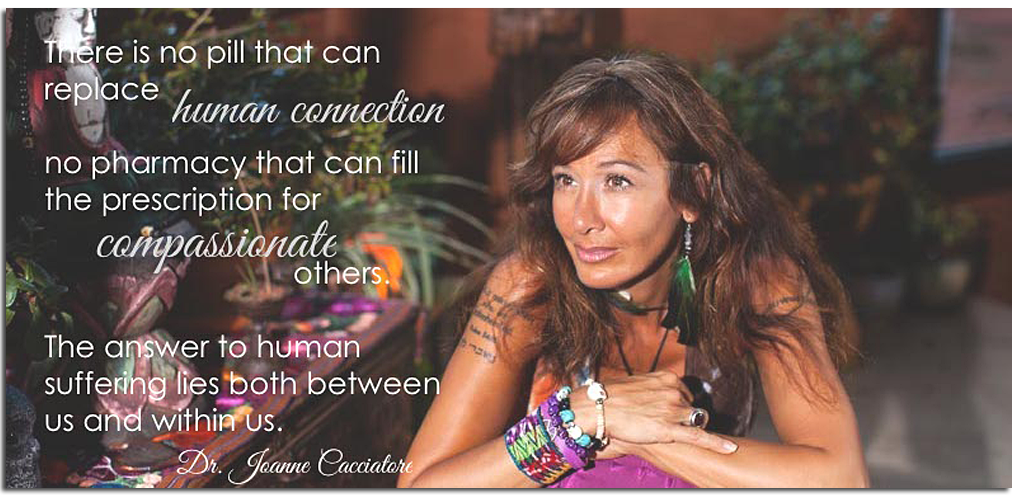Grief does not discriminate, and loss will, eventually,
affect us all. And for many who have already suffered loss, the holidays mark a
significant and painful reminder of that person’s absence during, what is
culturally recognized as, a time of celebration. Often, those mourning the
death of a loved one suffer in silence during the holiday, trying very hard to
put on their “game face”.
Yet, for some mourners, this forced inauthenticity may
exacerbate their already fragile emotional state, making them feel disconnected
from family, friends and other loved ones during the holidays.
So what do we do as mourners when others, all around us, are
celebrating? In my nearly two decades of working with and researching the
traumatically bereaved I found some things which may help connect us deeply
with self, other, and the natural world during what can be a very overwhelming
time of year:
1. Sharing your feelings openly and honestly with others
directly may help them to understand. Sometimes, the process of discussing the
loved one who died before the gathering begins can relieve the tension others
may feel wondering, “Should I talk about this or not?”
2. Rituals are often
very helpful, especially new ones. A few ideas, for example, include lighting a
candle and having a moment of silence at the beginning of the holiday meal,
asking family members to make a donation to a specific charity in his/her name,
setting an empty place at the table for him/her and asking each person to tell
their favorite memory, volunteering as a family in his/her memory, buying a
gift for a child the same age and donating it, and a craft-making project where
family and friends make an ornament in his/her memory. This not only gives
others permission to share their feelings but also brings people together by
enacting grief.
3. Connection with a
support group in your area can be very helpful.
Empirical research suggests that social support is one of the most
important variables in helping grievers cope.
There are many grief groups that meet in person and online. Even social
media can be used to help connect grievers to one another.
4. Get out into
nature if weather permits. Take a walk, hike, or just sit outside. If that’s
not possible, then bring nature inside. Create an indoor window garden or a Zen
sand garden. When possible, expose
yourself to natural sunlight at least a few minutes each day.
5. Move your body.
Exercise, even just walking, can help increase positive emotional states.
6. Practice
intentional solitude using contemplative prayer, silent time, or meditation. Take
a few minutes every morning and evening to breathe slowly and deeply, eyes
lightly closed. Focus on the stillness if you can. Keep this practice going.
7. Change your
routine. From the small things like changing the music you play when putting up
the tree or the meal you eat to leaving town for a planned holiday vacation,
novelty can help us cope at difficult times.
8. If you are
spending time with others during the holidays, tell them in advance of your
fragility. Let them know that you may leave early (it’s nothing personal toward
them), ask them if there is a quiet spot in the house where you can go to be
alone if you need it, and tell them the ways in which you’d like them to
discuss- or not to discuss- your feelings openly with others.
9. Give others
permission to talk about your precious loved one who died. Tell them what you
need. Sometimes, fear gets in the way of others approaching the bereaved. You can write a letter delineating what you
would like. For example, “Dear friends, At this time of year, we are struggling
without our daughter, Jane, in our home.
We know it is frightening but we’d like to ask you to talk about her
with us and to ask how we are really doing.
We’d like you to remember her in your prayers, and then tell us when you
do. We’d like you to consider a donation
to X charity in her name. Please send us
emails rather than calling us. We find
phone calls to be overwhelming right now. We’d appreciate help with meals
during the week of Christmas. If you are able to leave a meal at the door, we’d
appreciate it. Our friend, Mary, will be
coordinating that for us. Please contact her at XXX-XXXX. Finally, we love to receive cards so please
keep them coming. We love hearing your favorite memories of Jane. Thank you. We
are grateful for your support, and will need it for many years to come.”
10. Finally, give yourself permission to take care
of you and your family first. It is
okay to turn down invitations to events, to cut back on holiday celebrations
and décor, and to ask for help with child family members who may also be
grieving. Eat well, get enough rest when you can, and watch alcohol/drug
consumption. Stress, naturally, distracts us from self-care, so you’ll need to
be more vigilant during this time of year.
There is no question that, for many, grief and the sense of
isolation and loneliness amplifies during holidays. These 10 simple strategies may help us remain
more self-aware, self-compassionate, and feeling more connected to those around
us who love us, to our precious one who died, and to a deeper and wounded part
of our self. Together, connected, we can get through these dark days.


No comments:
Post a Comment